On Friday 13th October 10:00-12:30 Online we will host a series of talks and discussion to mark the start of our project exploring children’s understanding of digital good / bad. The intentions is to explore topics related to equity, sustainability and resilience:
- What do children aged 8-13 years consider are the positive and negative aspects of the digital devices that they use?
- What do kids know about AI?
- Who do they think are the workers connected to machine learning?.
- Do children believe digital practices need to change as a result of the climate crisis?
- What are kids key social concerns and how are their digital lives connected to this?.
- How would children aged 8-13 wish to change the digital devices they own in the future?
Speakers
| Exploring Children’s Attitudes Towards Notions of the Digital Good Through Hybrid Arts Practice |
Understanding children’s ideas/ knowledge is crucial in shaping our collective vision and actions. Yet, in discussing our shared digital future, many children in deprived areas are invisible through their lack of home wifi access and limited means to use, often shared, technologies. Dylan will introduce the intentions for this project which will host hybrid art workshops for children from a digitally marginalised cohorts to imagine and shape a possible digital future where technology use is ethical, responsible, and inclusive.
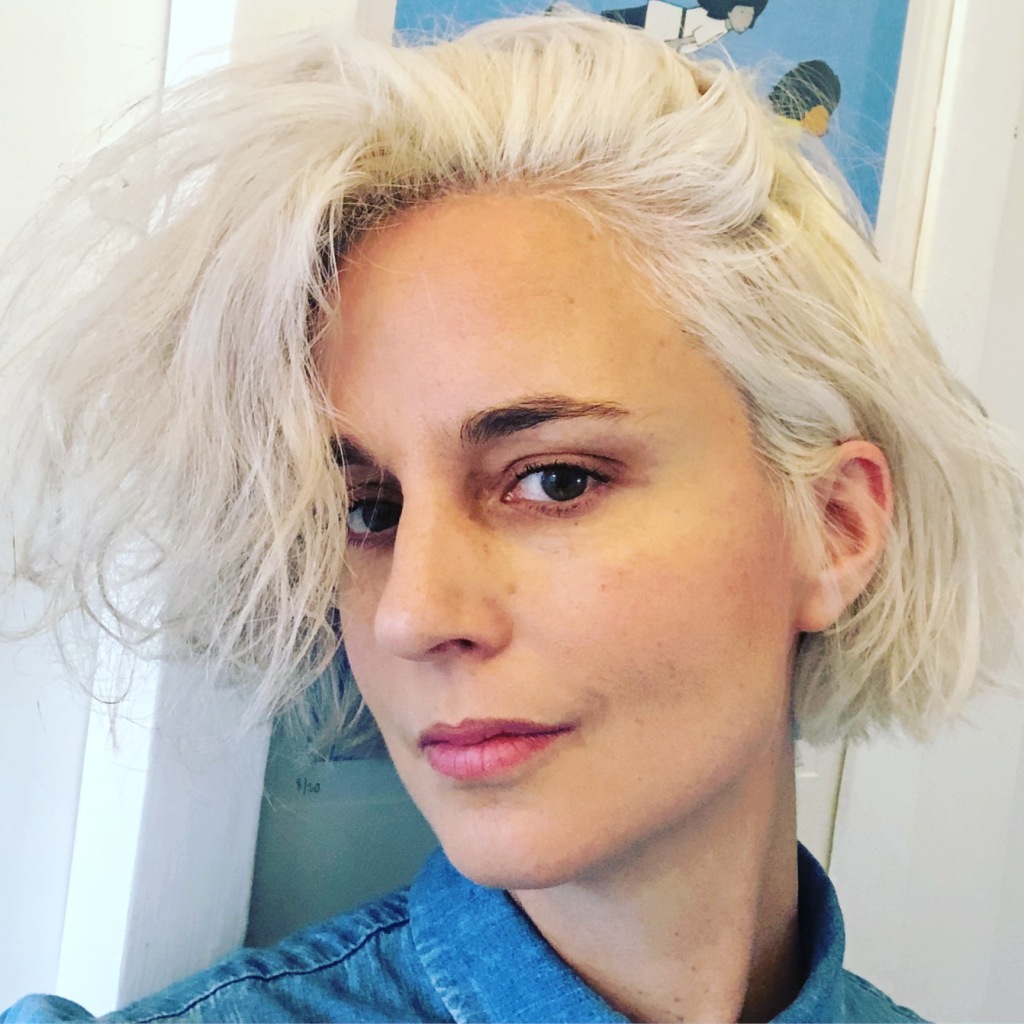
Dr Dylan Yamada-Rice is a researcher and artist specialising in play and storytelling for children. Having a doctorate in Education and MA degrees in Research Methods, Early Childhood Education and Japanese Semiotics, her work crosses academia and kids media industry. She is an Associate Professor in Immersive Storytelling at the University of Plymouth. Her research sits at the intersection of experimental design and social sciences, focusing on digital storytelling, games and play on a range of platforms such as apps, augmented and virtual reality, as well as new content for television, all with an emphasis on media for children
| Countermeasures: Sensing Children |

This talk will provide an overview of the Countermeasures project, which investigates methods of providing people with more awareness of, and agency over, the sophisticated sensing capabilities of digital devices. In particular it will share insights from a research project conducted with children aged 8-13, which used creative methods to help understand children’s knowledge of digital technology and surveillance, and invited them to invent speculative methods of deceiving technology.
Angus Main is a researcher and lecturer specialising in critical and creative uses of technology. His research topics have included using AI to support creative practice, and developing creative methods of counteracting the social issues caused by hidden digital surveillance from smart devices.
| Some Experiences of Using Virtuality and Performance to Explore the Implications of AI and Wider Digital Technologies |
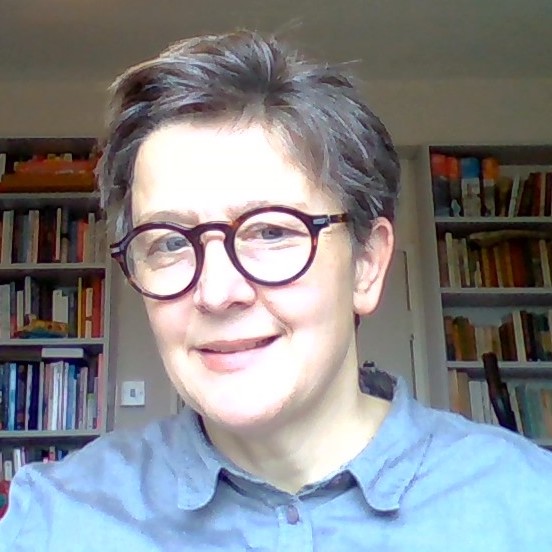
Eleanor will discuss a range of projects which explore some of the tensions and hyperbole surrounding AI. These include AI-Musement, Monstrous and the forthcoming X||dinary Stories and Big Telly production, Rear Windows. How can we engage a wide range of participants in critical and urgent questions, including children and how can we avoid reproducing the kind of unhelpful hyperbole which we have seen entangled with Cryptocurrency, the Metaverse and more recently, Chat GPT and so-called AGI (‘Artificial General Intelligence’)? Eleanor will discuss how processes of collaboration and performance within the context of much hyped technologies have the potential to ground dialogue, away from the advertising rhetoric and branding which emanates from neoliberal corporations.
Dr Eleanor Dare is the Senior Teaching Associate, Educational Technologies, Arts and Creativity, in the Faculty of Education, University of Cambridge, as well as module lead, AI and Education and currently co-convenor of MPhil Arts, Creativity and Education. Eleanor is also a Methods Fellow for Cambridge Digital Humanities as well as a Co-Founder of X||dinary Stories.
| AI and Configure-Able Methods |
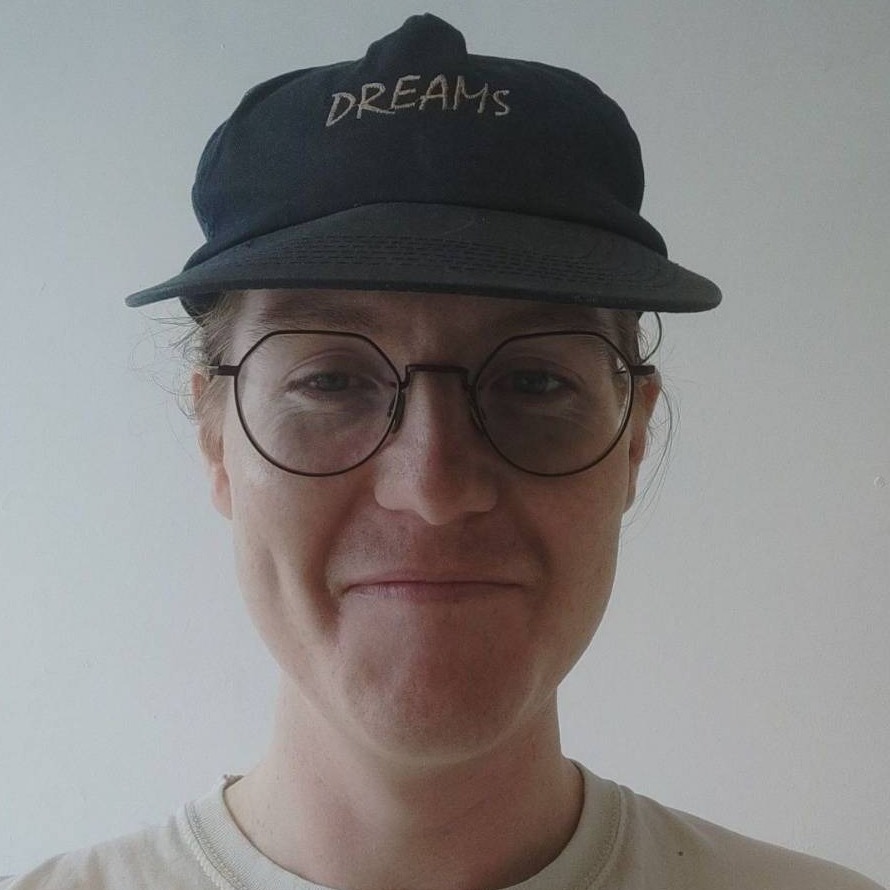
This talk discusses Configure-able methods through a critique of AI. It is a methodology bringing together STS, Crip studies and software studies to create new generative approaches and toolsets, centring on people and how enabling them through affirmative infrastructures can create transformative spaces of care, maintenance and change.
George Simms is PhD candidate at I-DAT, University of Plymouth, researching Trans*feminist and Crip methods towards AI and automation, specifically around collaborative/collective knowledge based infrastructures.
| What Can we Learn from Young People Views about AI? |

Children and young people’s views on AI are underrepresented in public attitudes research about AI. In the context of evidence of strong differential views about uses of AI, ways it affects people’s lives and how it could be governed, how can we learn more about what children think — to inform current and future uses of technologies?
Octavia is Associate Director (Impact & research practice) at the Ada Lovelace Institute. Her role connects research design to strategy, project planning, external outputs, impact and evaluation, ensuring that the Institute fulfils its commitment to make data and AI work for people and society.
Before joining Ada, Octavia worked in the creative and cultural industries as a gallerist and artist studio manager, in publishing as a commissioning editor, and in the technology sector as a product manager. Most recently, she worked in higher education, leading on strategic content and impact at the Royal College of Art.
Octavia has an MA in Digital Media Culture, with a subject specialism in cultural studies of tech workers. She is an advisory board member of the Arts and Humanities Research Council-funded project Patterns in practice at the University of Sheffield. Octavia is currently completing an MSc in Social Research.
| Meta Viddying It! Exploring Sci-Fi “Pop Culture Reference”: Influence on the Evolving Multi-dimensional Interweb |

James E. Marks, PlayLa.bZ CIC Co-founder, PsychFi Founder & Ravensbourne University London Honorary Research Fellow a switched on screenage innovator &
changemaking spatial computing arts co-creator, immersive experience designer, marketeer, educator, curator, artivist, renegade economist & tech volunteer.
His pioneering multi-award winning, multi-platform & multi-dimensional motion arts highlights include: British Film Institute,The Guardian, BBC Click, MozFest, V&A, Tate Modern, Boomtown Fair, Design Museum, MOMI, Lovie Awards, Webby Awards,Vice, Disney+, IBC, MWC, Glastonbury, Jisc, Stationers Awards For Innovation, Innovate UK, UAL, University Of Surrey, Kings College London, University of Bristol, MONDO 2000, Breaking Convention, London Fashion Week, ComicCon, Chartered Institute Of Marketing, Nintendo, YouTube, EA, Square Enix, Universal Music, British Red Cross, Trees For Cities, RSC, ArtFutura, The McLuhan Institute, WTA Tour, Cambridge Wireless & London Design Week.
| Digital Child Power |
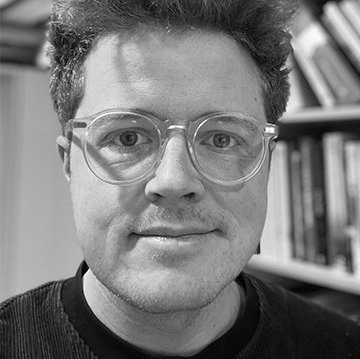
Thomas will present the new research focus area at the Centre of Primary and Lower Secondary Education Research (University of Southern Denmark), led by himself and Ane Bjerre Odgaard. They’re keen to develop research that actively listens to the problems and desires children present in relation to digital technologies. In doing so, they also aim to stay open-minded regarding the digital practices that are often viewed with great skepticism by adults or educators. Their first project will be about designing workshops with 10-year-old children in after school clubs where we can engage in play and worldbuilding with artificial intelligence technologies such as DALL-E and Chat GPT.
Thomas Enemark Lundtofte is Associate Professor in Media Studies, SDU, and head of the MA programme in Child and Youth Culture. His research centres on media practices of children and youth, and he often works from a media ethnographic perspective. Currently, he is very interested in critical theoretical thoughts on platformisation and datafication.

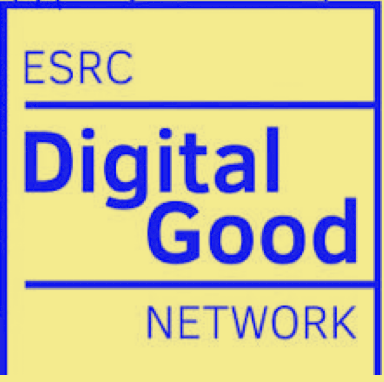

2 responses to “Industry Perspectives Towards Notions of Digital Good/Bad”
[…] Industry Perspectives Towards Notions of Digital Good/Bad […]
LikeLike
[…] Simms is a doctoral student at the University of Plymouth. He joined the first public event on ‘Children’s notions of digital good/bad’ to talk about his work on AI and Configure-Able […]
LikeLike